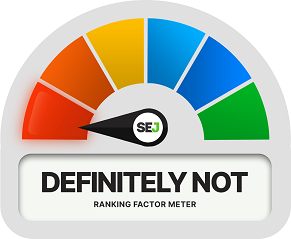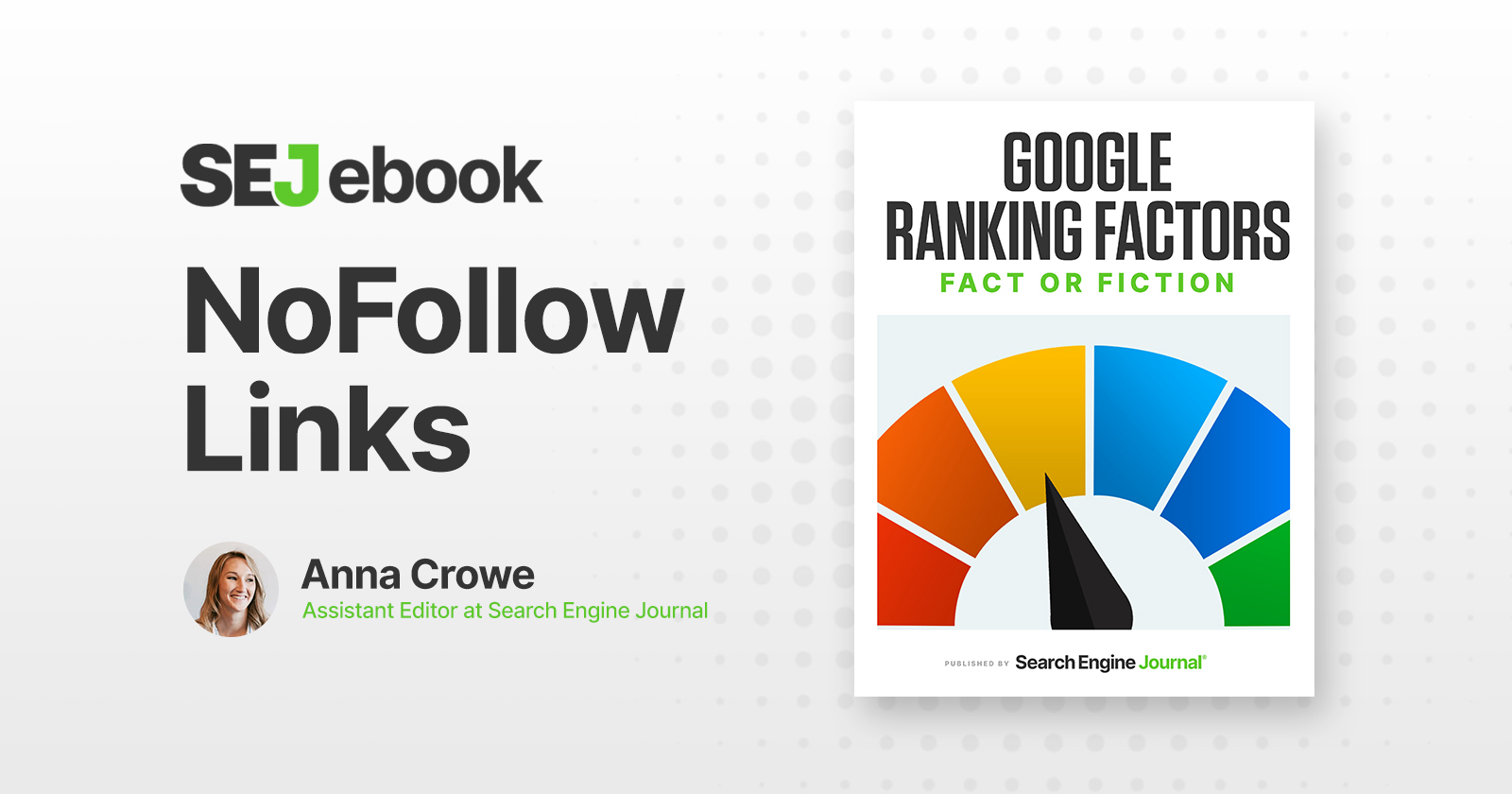“Nofollow” isn’t just a funny-sounding term SEO professionals use to sound more mysterious. Nofollow is an HTML attribute that’s been around for 14 years.
At its most basic, nofollow is a hyperlink attribute that tells Google to not pass PageRank so Google doesn’t even crawl nofollowed links.
You can control the nofollowing of any links on your site (whether those are to external sites or internal pages) with the simple addition of the nofollow attribute.
There are also nofollowed links that are out of your control – when another site links to you, but has marked it up as a nofollowed link.
Advertisement
Continue Reading Below
But is there any connection between nofollowed links and rankings?
It turns out there is a lot of confusion on this topic. Let’s get to the bottom of it all.
The Claim: Nofollow Links Are A Ranking Factor
Do nofollow links offer any value?
Nofollow links are not just a glorified attribute. It was a way to show search engines to ignore spammy or low-quality links.
Think of nofollow links as armor to protect your site from shady tactics.
It looks like this in your source code:
<a href=”http://www.example.com/” rel=”nofollow”>Anchor Text</a>
But do nofollow links really impact rankings?
Advertisement
Continue Reading Below
The Evidence For Nofollow Links As A Ranking Factor
Google introduced the nofollow link attribute in 2005 to help website owners fight off spam. Google required that sites add the nofollow link attribute if you were exchanging links.
If you didn’t and you got caught, Google could penalize you for link schemes.
That’s when nofollow links were introduced. Nofollow tag tells search engines to ignore the destination URL.
While Google can take manual action on you for not using nofollowing links, does it help your rankings?
In September 2019, Google’s Gary Illyes confirmed these directives serve as “hints.”
Focus on the other part: nofollow became a hint. Ugc and sponsored are icing on top of that cake, and it’s one of those things where you don’t have to do anything if you don’t want to. If you want to help us understand the web better, implement them. If you don’t want to, don’t.
— Gary 鯨理/경리 Illyes (@methode) September 11, 2019
Google’s Danny Sullivan chimed in to support Illyes’s comments related to nofollow links.
People may simply adopt these because they are specific to what they want to communicate to use about these links. They don’t have to make nofollow into a one-size-fits-all type of thing. They have a choice to be granular, if they want to….
— Danny Sullivan (@dannysullivan) September 11, 2019
These statements are supported in the nofollow announcement post by Google, which stated:
“When nofollow was introduced, Google would not count any link marked this way as a signal to use within our search algorithms. This has now changed. All the link attributes — sponsored, UGC, and nofollow — are treated as hints about which links to consider or exclude within Search.
We’ll use these hints — along with other signals — as a way to better understand how to appropriately analyze and use links within our systems.”
Advertisement
Continue Reading Below
More recently on September 10, 2019, Google introduced two new attributes to support the nofollow link: sponsored links and UGC links.
These attributes were created to help Google understand the intent behind the link.
Sponsored links (rel=”sponsored”) are used for promotional, advertising, or sponsored links.
UGC links (rel=”ugc”) are used for users who generate their own content that was not endorsed from an advertising perspective.
Can nofollow links hurt your site?
In a Google Search Central YouTube video on September 9, 2013, Matt Cutts shared that nofollow links do not hurt your site.
Cutts stated:
Advertisement
Continue Reading Below
“No, typically nofollow links cannot hurt your site. So, upfront, very quick answer.”
Can I use nofollow tag to control indexing?
No.
Simply adding the nofollow tag attribute to a link does not mean Google will not index or crawl your site.
The best way to preserve your crawl budget is with other methods like using the noindex attribute or disallowing from the robots.txt files.
Nofollow Links As A Ranking Signal: Our Rating

While links with a nofollow tag are no longer ignored, they do not pass ranking signals.
Advertisement
Continue Reading Below
While it’s interesting to see that nofollow links do not directly impact your rankings, it’s clear to see the little hints it serves to Google and search engines.
If you read between the lines, these “hints” we are serving to Google means you can tell Google to nofollow a link, but the ultimate decision lies with Google in “some” cases.
In the end, in most cases, your rankings will not be affected.
Featured Image: Paulo Bobita/Search Engine Journal
All screenshots taken by author, September 2021
